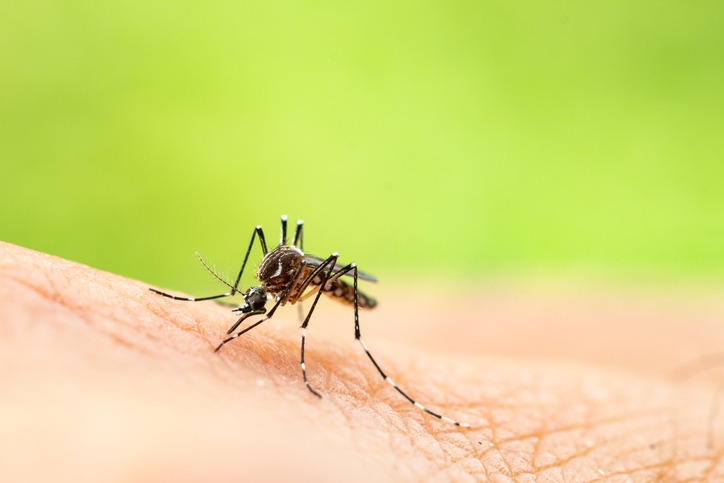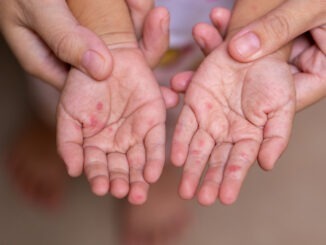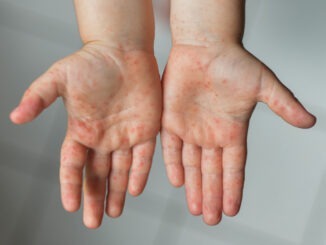
As reported by The Times, rising temperatures will fuel outbreaks of new diseases in Britain — but advances in genetic science will catch them earlier, the head of the UK Health Security Agency has said
Dame Jenny Harries, appointed in 2021 as the inaugural chief executive of UKHSA, the agency set up after the pandemic, said hotter weather, more torrential rain and marshland was changing wildlife, which in turn was causing more threats to health.
Harries, former deputy chief medical officer for England, said: “If you look at the excess heat that we are experiencing in Europe at the moment, we’ve got a completely changing risk environment.
“If we look over to France, for example, cases of dengue fever transmitted by mosquitoes are now happening there. We haven’t had that yet in the UK but as the temperatures rise, we’re certainly starting to see the occasional ingress of some types of mosquito.
“Some of these things we will not be able to stop completely. We’re not going to stop mosquito populations coming in.”
A fortnight ago Harries, 64, a regular at the Downing Street briefings at the height of the pandemic, told the Covid-19 inquiry that austerity measures had hit public health services.
Her role at UKHSA, which employs 5,300 staff and has a two-year budget of £395 million, is to work on testing strategies to catch the next serious threat to health.
This includes a plan to genetically sequence patient samples to try to spot a “disease x” more quickly.
The approach, known as metagenomics, could make the UK one of the first in the world to introduce what would in effect be a catch-all disease surveillance scheme.
Unlike current genome sequencing, where laboratories test for specific diseases, metagenomics allows samples to be tested for the presence of any pathogen. Used on a range of samples, taken from patients at the centre of a disease outbreak, it could monitor how the genetics change and whether a dangerous new variant was emerging.
Harries said: “It’s a way of looking for disease x. It’s a signalling system, but quite a highly technical signalling system so even if we can’t prevent something, what we can do is get that signal early.”
Examples of other health threats include the rise of West Nile virus in the US, and the threat of another flu pandemic, which could become more likely as animals are displaced and forced into closer contact with humans.
Melting ice in colder parts of the world has led to confused bird migrations, meaning bird flu cases have stopped being seasonal and have become entrenched in bird flocks year-round.
“We can’t predict precisely when the next flu pandemic is going to arrive, but we can say there will be one,” Harries said. “Flu was and still is, right at the top of the national risk register.
“If we don’t stay ahead of the curve and think through what we can prepare in advance then clearly lives are at risk.”
But she added there was now a chance of avoiding lockdowns with plans for better genetic surveillance, data sharing and pipelines to develop vaccines, testing and treatments more quickly.
“We have an armoury of new health protection tools, which I think we have never had before,” said Harries, who has worked previously as a deputy chief medical officer in the Department of Health and Social Care as well as a public health director in Norfolk and Swindon.
She said lessons had been learnt since the pandemic, particularly on how quickly new testing could be rolled out.
One of the most important developments from it, though, was the dawn of mRNA-based vaccines, which help the body to make the antibodies needed to fight a virus.
Pharmaceutical companies, such as Moderna or Pfizer, are developing new vaccines using the same technology against flu, cancer and other diseases.
Harries said: “People shouldn’t get too depressed. We should be excited about the science that’s there. The opportunities to work differently, particularly with industry, to use data and things like metagenomics to think ahead, so that we can actually grow our scientific industry and get ahead of the game to protect lives.”



Be the first to comment